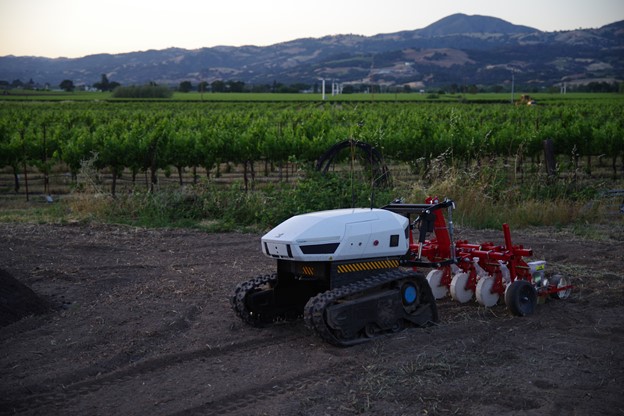Who knew AI would have an impact on organic produce markets?
Bakur Kvezereli did. Raised on an Eastern European organic tomato farm, he saw labor shortages, pesticide problems and rising energy costs. Years later, studying at MIT in 2014, it dawned on him that AI could help address these issues for farmers.
A few years later, he founded Ztractor, an autonomous electric tractor startup based in Palo Alto, Calif.
Ztractor offers tractors that can be configured to work on 135 different types of crops. They rely on the NVIDIA Jetson edge AI platform for computer vision tasks to help farms improve plant conditions, increase crop yields and achieve higher efficiency.
Going electric means Ztractor machines also don’t belch out plumes of black diesel exhaust.
The company is among a growing field of agriculture companies like Bilberry, FarmWise, SeeTree, Smart Ag and John Deere-owned Blue River adopting NVIDIA GPUs for training and inference. These companies are leading the way in reducing the use of herbicides and supporting organic farms.
‘Tesla Moment’ for Tractors
Kvezereli said that one of the insights he had while studying for an MBA at MIT was that industrial agricultural machines were poised for their own electric revolution.
The same dynamics that affect autos — pollution reduction mandates and clean vehicle purchase rebates — are facing agricultural equipment makers and their customers, he said.
“I realized that the tractor industry is on the cusp of its own Tesla moment, with a transition to electric machines and AI,” said Kvezereli. “The tractor companies will be shifting to electric.”
The worldwide tractor market was valued at just under $150 billion in 2020, according to market researcher Mordor Intelligence.
AI Supports Organic Farms
In many countries, farm labor is limited. A survey by the California Farm Bureau Federation reported that 56 percent of more than 1,000 farmers were unable to hire adequate labor.
ZTractor offers three different models to help assist farmers. Each sports 67 sensors, six cameras and GPS. The tractors collect field data that’s fed into models run on the NVIDIA Jetson edge AI platform to provide insights about crop conditions.
Pests can be identified in milliseconds with convolutional neural networks, quantified and mapped to a particular zone, enabling faster treatment. If aphids are invading, and it’s an organic farm, it might be time to release the ladybugs to gobble them up. The alternative of relying on periodic boots on the ground for inspections might otherwise lead to crop yield losses.
“You need to hire 30 percent more people to achieve the same competitive quality of organic tomatoes as non-organic” said Kvezereli. “That’s where Ztractor comes in.”
Ztractor machines can also handle soil preparation tasks like tilling and disking. It can work with seeding and precision weed control equipment — like smart sprayers with AI-driven cameras — to help make up for labor shortages for these tasks.
The machines can run eight to 12 hours on a charge, depending on the unit.
Jetson-Driven Tractor Autonomy
Farmers can set coordinates for the tractor’s path using satellite data or aerial images and the onboard GPS for geofencing the machines.
The tractors run the TrailNet model, processed on the NVIDIA Jetson Xavier, for real-time path planning. The neural network — trained on a custom dataset of about 500 images — was run on cloud instances of NVIDIA GPUs.
Its plug-in electric system offers a 75 percent reduction in energy costs compared with diesel tractors, according to Kvezereli.
“There is a demand for zero-emission farming from both a public policy and customer perspective,” said Kvezereli.
Pilot tests of Ztractor’s system are underway at several organic garlic family farms based in Gilroy, Calif., just southeast of Silicon Valley.
